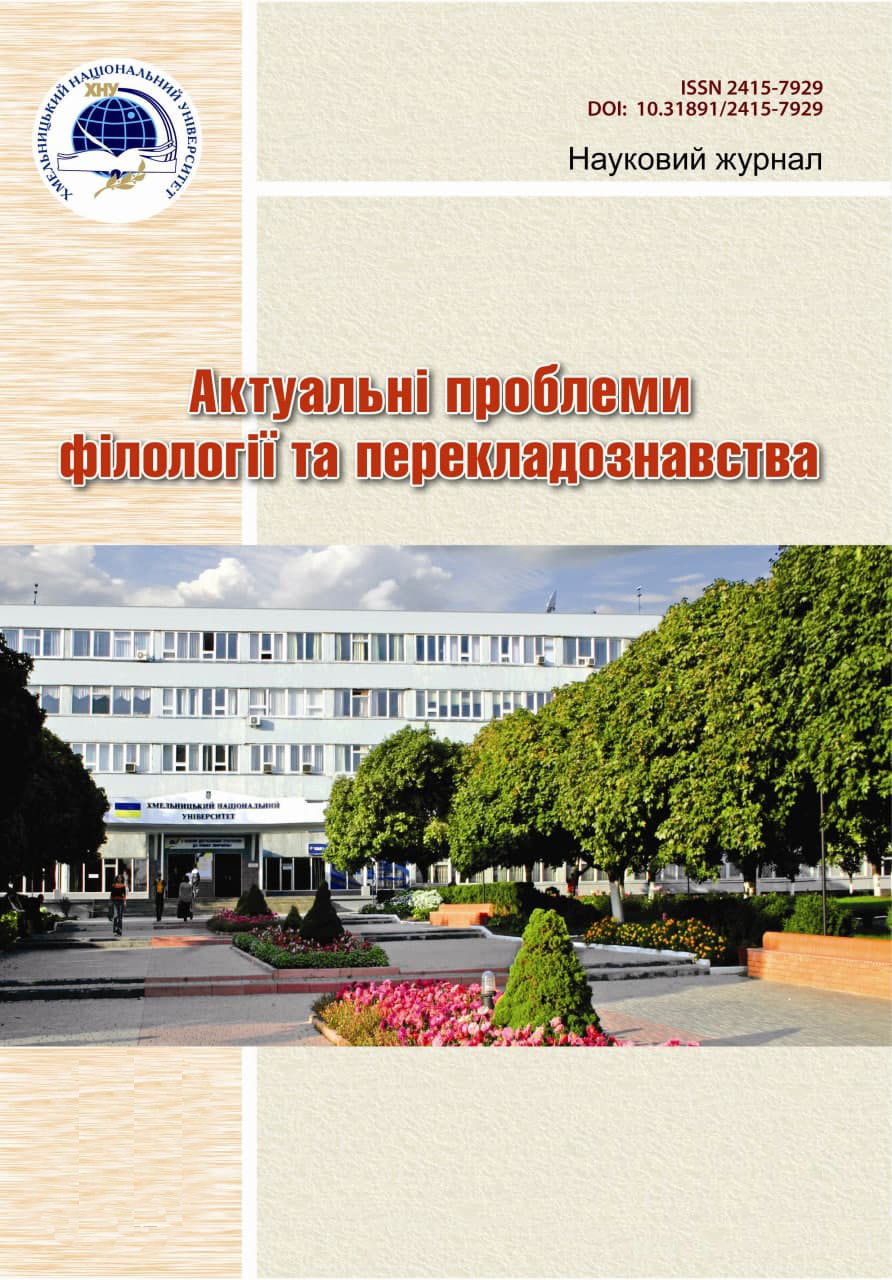STYLISTIC POTENTIAL OF SLANG UNITS AND COLLOQUIALISMS OF ENGLISH ORIGIN IN THE NON-FICTION WORKS BY IRENA KARPA
DOI:
https://doi.org/10.31891/2415-7929-2023-27-39Keywords:
English borrowing, slangism, colloquialism, stylistic potential, non-fiction, Irena KarpaAbstract
The present article dwells on the stylistic potential of English slang and colloquial borrowings in How to Get Married as Many Times as You Want by Irena Karpa. While both types of units represent the colloquial substandard of the Ukrainian lexis and belong to its periphery, in practice they are virtually indistinguishable from one another. Consequently, they have been jointly analysed in this research.
Most colloquial borrowings belong to the low register and are actively employed in creating an atmosphere of casual unfiltered communication. Slang and colloquial anglicisms possess inherent stylistic markedness, especially the less assimilated units like barbarisms, colloquial idioms, general neologisms, and author's coinages. Due to their low level of assimilation, they can be represented through either Ukrainian or English graphemes. Furthermore, the author explicitly explains the meaning of some anglicisms in the case of low semantic adaptation.
The borrowed slang and colloquial units may exhibit additional (contextually determined) stylistic markedness when they are utilized as a part of various stylistic devices, including include epithet, metaphor, hyperbole, gradation, parenthesis, antithesis, amplification, epiphora, irony, humour, rhetorical questions, exclamation sentences, etc. Overall, the author’s adept use of a multitude of stylistic devices harnessing the expressiveness of colloquial and slang English borrowings can be viewed as one of the hallmarks of Irena Karpa’s style.
In conclusion, Irena Karpa’s use of English-derived slang units and colloquialisms within her book How to Get Married as Many Times as You Want testifies to the high stylistic potential of the analysed units. Further studies may focus on the stylistic nuances of English borrowings that function across different discourses.
Downloads
Published
Issue
Section
License
Copyright (c) 2025 І. Г. ПАВЛОВА, С. О. ПЕДЧЕНКО (Автор)

This work is licensed under a Creative Commons Attribution-NonCommercial-NoDerivatives 4.0 International License.

